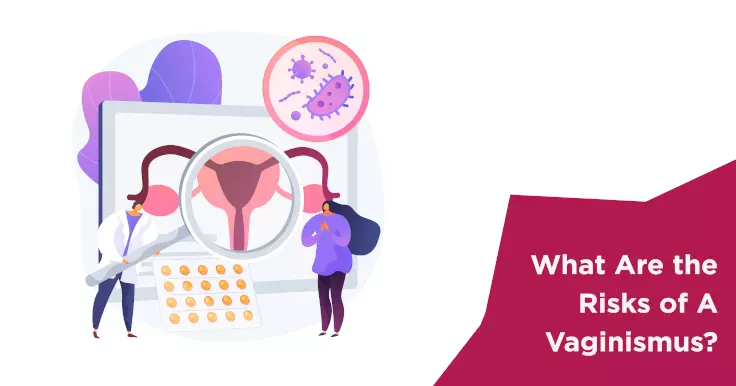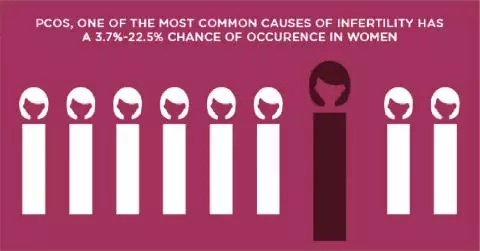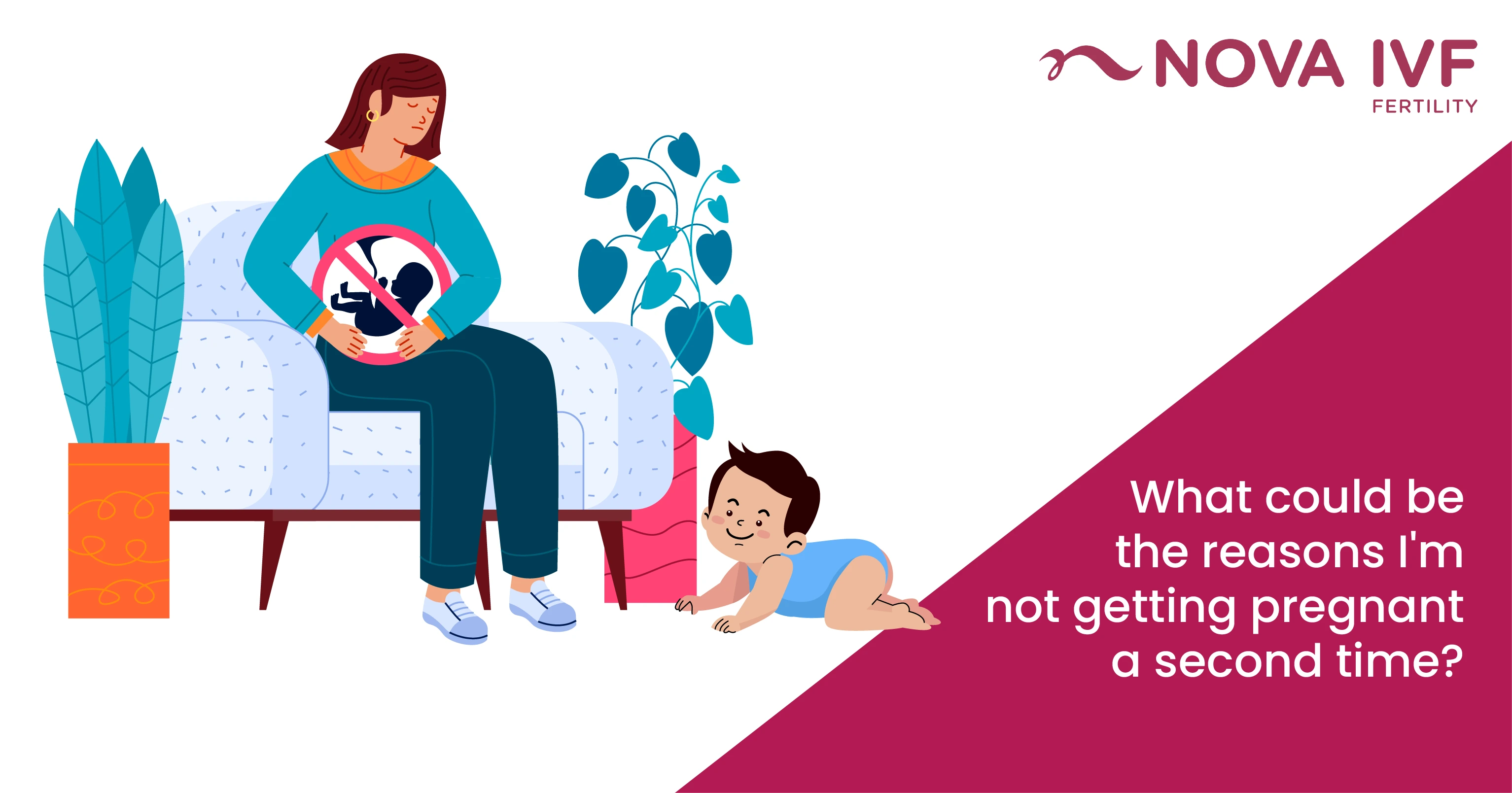Vaginismus

Vaginismus can affect women of any age and can be a temporary ailment or stick for a lifetime. However, it can be treated using simple exercises, some counselling and by using vagina dilators.
Vaginismus is of several types namely primary, secondary, global, and situational, but the symptoms experienced by the patients are almost the same. Generally, a woman having vaginismus experiences vaginal spasms that make her incapable of handling penetration of any kind. The muscles around the vagina tighten too much, causing immense pain when an object tries to penetrate the vagina.
Women diagnosed with vaginismus require psychological therapy and counselling along with appropriate exercises that will relax the muscles of the pelvic floor and help them experience vaginal penetration with ease. Therefore, treatment of vaginismus requires a thorough understanding of the medical history of the patient.
This article shares information about vaginismus causes, symptoms, treatment options, and other things.
Understanding Vaginismus
Vaginismus or vaginism is a condition found in women who are unable to engage in vaginal penetration during sexual intercourse or during gynaecological examination, which means they are unable to use tampons and menstrual cups due to severe involuntary muscle cramps in the vaginal area.
Women having vaginismus cannot control their spasms and thus experience immense pain during vaginal penetration. The reflex is akin to an eye shutting when an object comes towards it.
Vaginismus can affect any woman and it can be triggered generally due to fear, anxiety, childhood experiences, or traumatic events in life. Women may fear the pain during sexual intercourse or pregnancy or could have been victims of sexual abuse that emotionally and physically shuts them from experiencing vaginal penetration. Kegel exercises help to relax the muscles to a great extent.
Vaginismus affects women not only because of physical triggers but also emotional ones. Certainly, infections (such as yeast infection or urinary tract infection), surgery, childbirth, menopause, etc., play a huge role in causing vaginismus. However, emotional trauma, sexual inhibition, fear of intercourse or pregnancy, and abusive childhood also are significant factors contributing to vaginismus in women.
What Is Dyspareunia?
Dyspareunia is a medical term used to describe a condition where sexual intercourse becomes painful preventing the affected female to avoid it. Dyspareunia is often confused with vaginismus because of the similarity in symptoms; however, dyspareunia can be caused by cysts, vaginal atrophy, or pelvic inflammatory disease (PID).
Vaginismus Types
There are different types of vaginismus affecting women of different ages, and the most common ones are listed below:
- Primary Vaginismus: This condition is present throughout the life of a woman, and it gets difficult for her to use tampons or undergo any gynaecological examination. Especially during her first intercourse, the woman feels immense pain and the man is unable to insert the penis into the vagina. Women experience pain, generalised spasms, and have difficulty in breathing in this vaginismus type.
- Secondary Vaginismus: This condition occurs after a woman has had a regular sexual function. Secondary vaginismus is triggered by some sort of infection, menopause, surgery, perimenopause, and childbirth.
- Global Vaginismus: This vaginismus type is a condition where vaginismus has always been present in the woman and can be triggered by any object.
Situational vaginismus: Situational vaginismus occurs only in certain situations such as sexual intercourse. Vaginal spasms may not be present during tampon insertion or gynaecological tests.
Vaginismus Causes
Vaginismus can be caused due to emotional triggers such as troubled childhood, sexual abuse, and fear of sex, or due to other factors like urinary infection, surgery, childbirth, or menopause. Overall, vaginismus is not a life-threatening disease but a condition where women feel pain during vaginal penetration.
Although the vaginismus symptoms of several types of vaginismus may be similar, causes of primary and secondary vaginismus differ in a few aspects. Below are the common causes of vaginismus:
Causes of primary vaginismus
- Vulvar vestibulitis where no pain is felt until some kind of penetration is attempted
- Infections of the urinary tract
- Yeast infection in the vagina
- Sexual assault or abuse
- Witnessing physical or sexual abuse attempted on others
- Troubled childhood, domestic violence, and unpleasant experiences in childhood that have a deep impact on the psyche
- Fear of pain when thinking about sexual intercourse due to the popular misconception of painful vaginal penetration while having sex for the first time
- Physical trauma (even if not related to genitals) and complaint of chronic pain
- General stress and anxiety
- Upbringing in a sex-negative environment that creates disgust towards the entire act of sex and intimacy
- Religious faith promoting sexual inhibition and considering having sex a sin until one is married
- Sometimes, primary vaginismus can be idiopathic meaning the actual reason behind the disorder is unknown.
Causes of secondary vaginismus
- Fear of losing interest and control in sexual intercourse
- Not trusting the partner enough to be physically intimate
- Extreme consciousness about body image and physical appearance after a certain age
- Misconceptions about sex and sexual standards due to indulgence in pornography or abstinence
- Stressed about vagina not being wide or deep enough to support penetration during sexual intercourse
- Undiscovered or denied sexuality
Primary vaginismus affects a woman early in her life and can remain for a long time, while secondary vaginismus occurs after a woman has experienced intercourse and/or childbirth.
Vaginismus Symptoms
The symptoms of vaginismus are easy to identify and treat. When doctors suspect vaginismus in a patient, they perform a pelvic examination for confirmation and provide treatment accordingly. Did you know that early signs of vaginismus can include aversion to sex?
Following are some commonly identified vaginismus symptoms:
- Involuntary Spasms: Women experience involuntary tightening of vaginal muscles when their partners try to penetrate during sexual intercourse. This may affect their sexual life as patients are not able to enjoy sex. Sometimes, they may also have dyspareunia if the pain during intercourse is intolerable. Medical assistance is required for such patients.
- Stinging Sensation: Sometimes, women experience burning, tearing, or stinging sensation in the vagina either during sexual intercourse or when they attempt to insert objects such as tampons into the vagina.
- Pain During Gynaecological Exams: Women experiencing extreme pain while taking gynaecological examination like per vaginal examination, insertion of speculum.
- Breathing Issues: When a woman is unable to breathe properly during intercourse, or experiences halted breathing, she may be suffering from vaginismus and requires immediate medical care.
- Spasms in the Lower Body: When women have muscle spasms in the lower part of the body such as lower back, legs, etc., while having intercourse, the doctors might blame it on vaginismus.
- Unconsummated Marriage: For the fear of sex and the associated pain during sexual intercourse, women avoid consummating their marriage and do not have sex with their partners.
- Male Partner Feels like "Hitting a Wall": During sexual intercourse, the vaginal spasms are so bad that the male partner is unable to penetrate and feels like "hitting a wall" when attempting to do so. This leaves the male partner sexually dissatisfied. Ideally, vaginal muscles are as flexible as other muscles of the body. Since many women are brought up in a sex-negative environment, they develop a fear of sexual intercourse. Also, not many women are accustomed to using tampons and menstrual cups during menses. Thus, the muscles around the vagina tighten and pain when suddenly an object tries to enter the vaginal canal.
Vaginismus Diagnosis
Diagnosis of vaginismus is not quite easy and needs a consultation with gynaecologists or fertility specialists.
In fact, the symptoms of vaginismus such as painful sexual intercourse, burning or stinging sensation during penetration, etc., cannot be identified accurately unless a pelvic examination is conducted by doctors. It is essential to consult gynaecologists, physical therapists and sex therapists and counsellors before the final vaginismus diagnosis is made. These specialists first understand the complete medical history of the patient, listen to all the symptoms that the patients are experiencing, and do a thorough pelvic check-up before they diagnose vaginismus.
Clinical Evaluation of Vaginismus
Physicians perform a pelvic examination of the patient to exclude the possibility of dyspareunia and focus on diagnosing vaginismus based on their symptoms.
After completing the examination, the physician makes the patient sit up and view her genitals in the mirror. The patient is asked to spread her labia and either the woman herself or the physician inserts a finger inside the vagina, past the hymen, until she is able to bear down. This simple examination helps the physician to diagnose vaginismus.
In case it is vaginismus, the patient is given emotional and sexual counselling from experts, and the physician also teaches her some Kegel exercises which the patient is asked to do daily to relax the muscles around her vagina and make it fit for penetration.
Vaginismus Risk Factors
Vaginismus may be found in women since childhood, or in the adult age after they have experienced sexual function, where this condition develops because of some infection, psychological reasons. Although this condition does not affect every female, there are many complications or risks involved when diagnosed with vaginismus.
Vaginismus can cause a lot of complications in women who are diagnosed with it. It can lead to physical and emotional distress in women, since they are either sexually unsatisfied or might have trouble in getting pregnant. Following are the commonly known complications caused by vaginismus:
- Emotional and Psychological Distress: Often, the inability to support vaginal penetration makes a woman emotionally and psychologically drained out. This leads to poor self-esteem and insecurity among women.
- Dyspareunia-like Symptoms: It is a condition of painful or difficult sexual intercourse experienced by a woman. Lack of arousal or poor lubrication caused by pelvic inflammatory disease or endometriosis can be one reason, and vaginismus can be another major reason for you to experience dyspareunia-like symptoms.
- Stress: Vaginismus can make a woman completely stressed out because she constantly feels guilty about not being able to have a fulfilling sexual life. The stress further causes hormonal imbalance (for example, a drop in oestrogen levels) and may also affect vaginal lubrication due to which vaginal penetration becomes difficult.
- Depression and Relationship Issues: Vaginismus makes it difficult for women to enjoy sexual intercourse with her partner. Also, the man is not sexually satisfied as he is not able to penetrate enough. This leads to depression and issues in the relationship since both partners are unable to feel physically intimate and often abstain from intercourse.
- Infertility: Vaginismus can also lead to infertility which is a condition where women are unable to bear a child. If diagnosed with infertility, women can consult reproductive consultant for further options. The complications caused by vaginismus can be avoided by taking appropriate vaginismus treatment. Consulting doctors and counsellors for treatment and vaginismus therapy can help women lead a normal life like their peers.
Vaginismus Treatment Options
Vaginismus is a treatable condition and with a little medical assistance, the patient can be fully recovered. Doctors check the complete medical history of the affected patients and perform pelvic examinations to understand the severity of the condition. Following are the treatment methods used to treat vaginismus:
- Counselling and Sex Therapy: Women attend a few counselling sessions alone or with their partners where they are counselled about sexual disorders. Sessions, where doctors help patients tackle their mental fear for responding better to vaginal penetration, are also conducted. Women are thoroughly educated about female anatomy, muscles of the pelvic floor, and what happens during sexual intercourse. Patients are given good insight into vaginismus and the type of treatment they require based on the severity of the disorder.
- Vaginal Dilators: Doctors suggest the use of vaginal dilators under their supervision. A vaginal dilator is a cone-shaped structure inserted into the vagina of a woman to relax the vaginal muscles and make them flexible. These dilators, when inserted into the vagina, grow progressively bigger and help relax the muscles of the vagina and accommodate a large object easily. This makes women accustomed to vaginal penetration, helping them experience intercourse, use tampons, and undergo medical examinations when required without much pain.
- Touching to Reduce the Sensitivity to Insertion: Women can practice touching the area as close as possible to the vaginal opening regularly without causing pain and move closer each day until they can. Later, they can even touch the vaginal lips before inserting their finger inside the vaginal canal. This way, the muscles can get accustomed to objects entering the vagina, making vaginal penetration easier.
- Kegel Exercises: Kegel exercises are designed specifically for relaxing the pelvic floor muscles and make them flexible. These exercises control the tightening and loosening up of muscles around rectum, vagina, and bladder.
How to Practice Kegel Exercises for Vaginismus Treatment?
While attempting Kegel exercises for the first time, it is important to take assistance from your counsellor or doctor. You can do these exercises at home once you learn how to do them. For doing Kegel exercises you need to squeeze the same muscles in such a way that you use them for stopping the flow of urine while urinating, and then repeat the below-given steps:
- Squeeze the muscles
- Hold them for about two to ten seconds
- Relax the muscles
You can do these exercises around 20 at a time. Later, you can increase the count until you are able to do them. These Kegel exercises can help relax the muscles.
Personal Stories
Vaginismus Support Groups and Resources
Here are some resources for you to get support if you have been diagnosed with vaginismus:
The following trusted resources can help you understand vaginismus:
- Vaginism by ScienceDirect
- Vaginismus by Medline Plus
- Vaginismus by NHS
 Infertility Counselling
Infertility Counselling Female Infertility Treatment
Female Infertility Treatment Andrology Treatment
Andrology Treatment Fertility Enhancing Surgeries - Female
Fertility Enhancing Surgeries - Female Fertility Enhancing Surgeries - Male
Fertility Enhancing Surgeries - Male Endoscopy Treatment
Endoscopy Treatment IUI Treatment
IUI Treatment IVF Treatment
IVF Treatment ICSI Treatment
ICSI Treatment Advanced IVF Solutions
Advanced IVF Solutions Embryology
Embryology Vitrification Egg, Embryo, Sperm Freezing
Vitrification Egg, Embryo, Sperm Freezing Preimplantation Genetic Testing (PGT)
Preimplantation Genetic Testing (PGT) Donation Program Embryo / Egg / Sperm
Donation Program Embryo / Egg / Sperm Self-cycleTM IVF
Self-cycleTM IVF

 Self-cycleTM IVF
Self-cycleTM IVF










